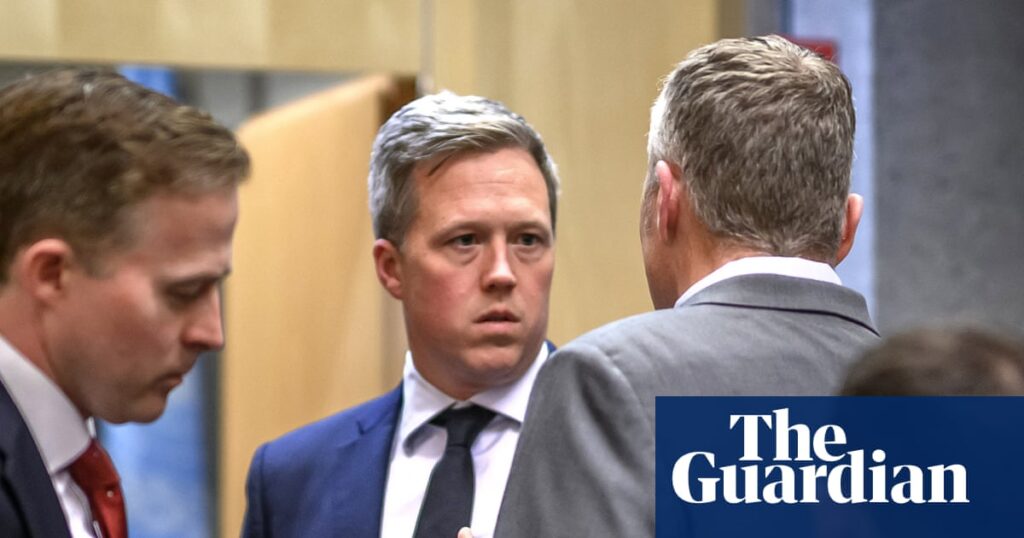
The US Army Secretary, Daniel Driscoll, has emerged as an unexpected envoy in the Trump administration’s latest proposal to end the Russian invasion of Ukraine. His involvement underscores the influence of JD Vance, the Eurosceptic Vice-President, in shaping foreign policy. Driscoll, who was not previously known for diplomatic negotiations, is now at the forefront of efforts to broker peace, currently stationed in Abu Dhabi where Russian and Ukrainian delegations are meeting for talks.
Driscoll’s close ties to Vance, a Yale alumnus and personal friend, highlight the resurgence of isolationist strategies within the administration. Vance had previously intervened during Ukrainian President Volodymyr Zelenskyy’s challenging visit to the Trump White House, demanding more “respect” towards Trump. Now, Ukraine faces renewed pressure from the US to accept a deal that local officials have criticized as a “capitulation.”
Vance’s Role and the Peace Proposal
The development follows a tumultuous year in the White House, where foreign policy decisions are reportedly influenced by a select group of Trump’s advisors, including Chief of Staff Susie Wiles, right-wing strategist Stephen Miller, and Secretary of State Marco Rubio. Vance, a vocal supporter of the new peace proposal, has been instrumental in its development alongside envoy Steve Witkoff and Trump’s son-in-law Jared Kushner, in collaboration with Kremlin envoy Kirill Dmitriev.
Despite Vance’s earlier unsuccessful attempts to negotiate with Russia and renew relations, the current peace proposal aligns closely with his positions. European officials have expressed frustration with Vance’s previous speeches, which accused them of ignoring voter sentiments similar to Trump’s base. However, Vance remains a staunch advocate for the deal, even as the US faces criticism for seemingly accommodating Vladimir Putin’s demands.
“Every criticism of the peace framework the administration is working on either misunderstands the framework or misstates some critical reality on the ground,” Vance wrote. “There is a fantasy that if we just give more money, more weapons, or more sanctions, victory is at hand.”
Internal Administration Dynamics
Meanwhile, the peace plan has not received unanimous support within the administration. Marco Rubio, known for his hawkish stance, has shown tepid enthusiasm for the proposal. As part of a US delegation to Geneva, Rubio aimed to moderate the initial 28-point plan to make it more palatable to Kyiv’s leadership. His public statements have emphasized the need for realistic and difficult concessions from both sides.
“Ending a complex and deadly war such as the one in Ukraine requires an extensive exchange of serious and realistic ideas,” Rubio stated. “Achieving a durable peace will require both sides to agree to difficult but necessary concessions.”
However, in private, Rubio has reportedly expressed skepticism about the plan. Republican Senator Mike Rounds revealed at the Halifax International Security Forum that Rubio clarified the proposal as a preliminary Russian offer, not an administration initiative.
“Rubio did make a phone call to us this afternoon and I think he made it very clear to us that we are the recipients of a proposal that was delivered to one of our representatives,” said Rounds. “It is not our recommendation, it is not our peace plan.”
Looking Ahead
Despite initial hesitations, Rubio has since aligned with the administration’s stance, asserting that the proposal is a US-authored framework intended to guide ongoing negotiations. As the peace talks continue, the administration faces the challenge of balancing internal disagreements and external pressures to achieve a resolution that respects Ukrainian sovereignty while addressing both Russian and Western concerns.
The outcome of these negotiations could significantly impact the geopolitical landscape, with potential implications for US-European relations and the broader international community’s approach to conflict resolution. As the Thanksgiving deadline approaches, all eyes remain on the Trump administration’s ability to secure a peace agreement that satisfies all parties involved.






